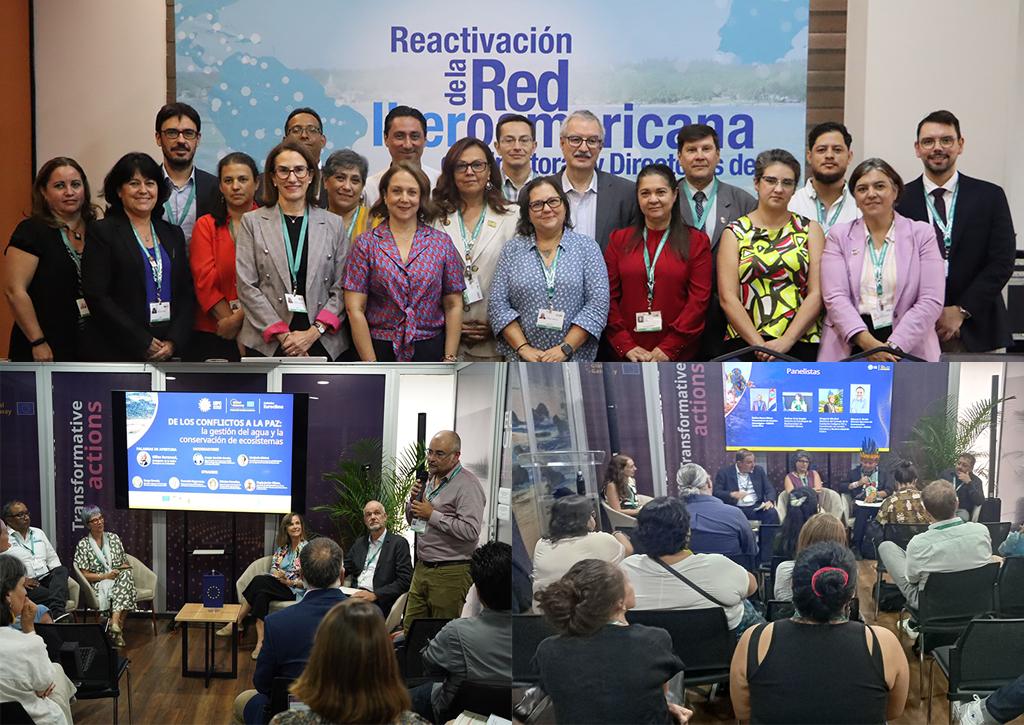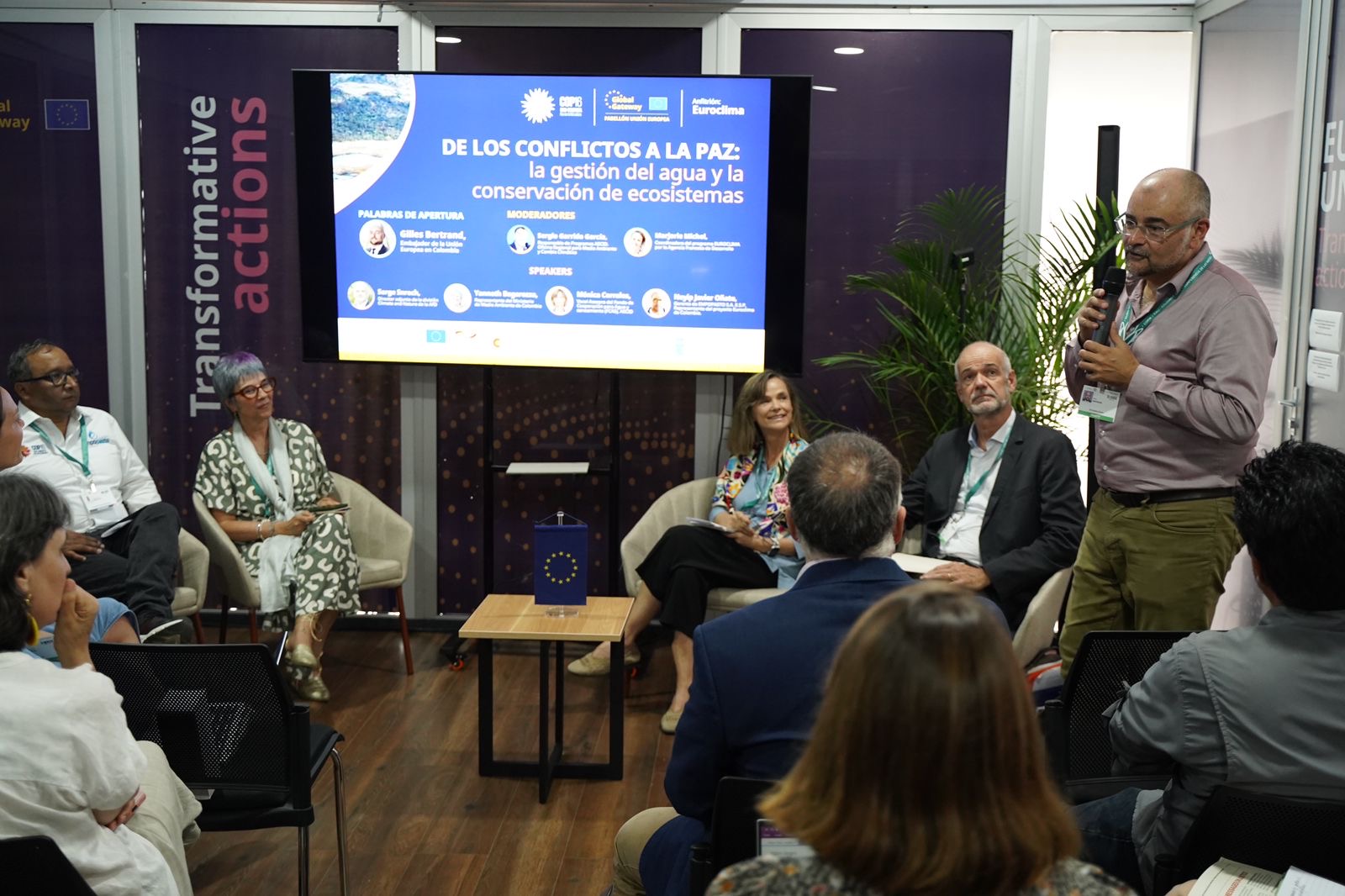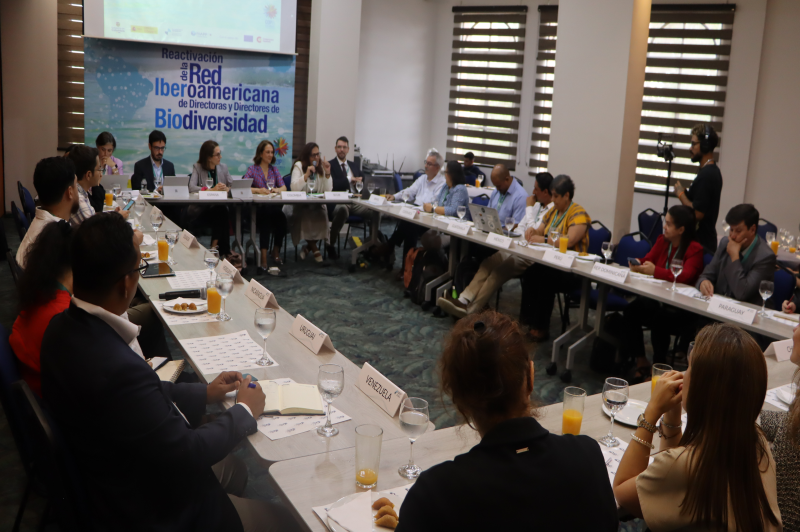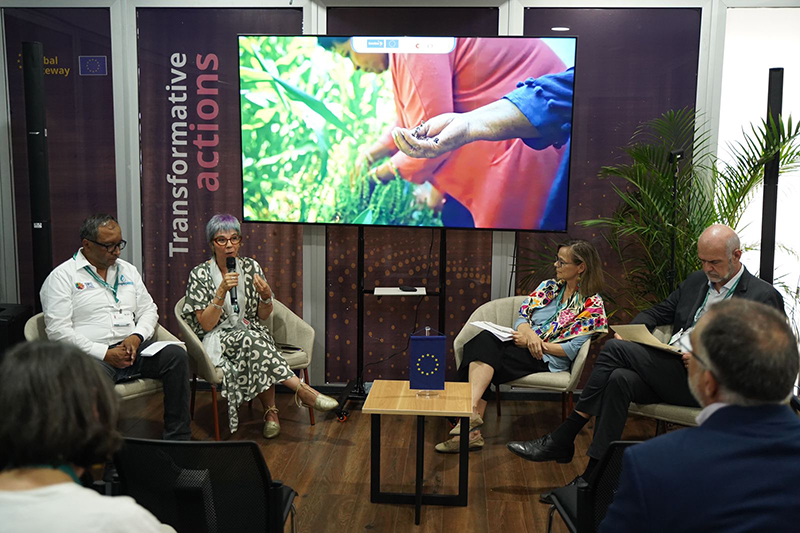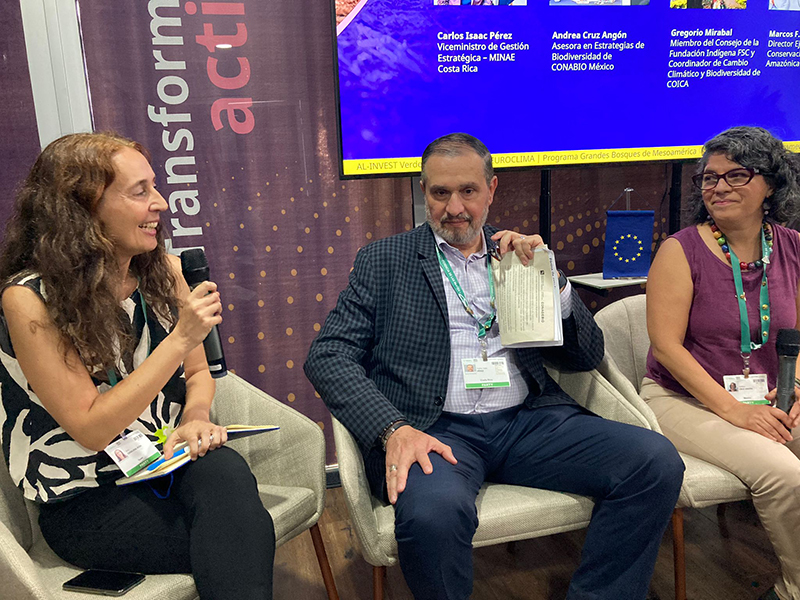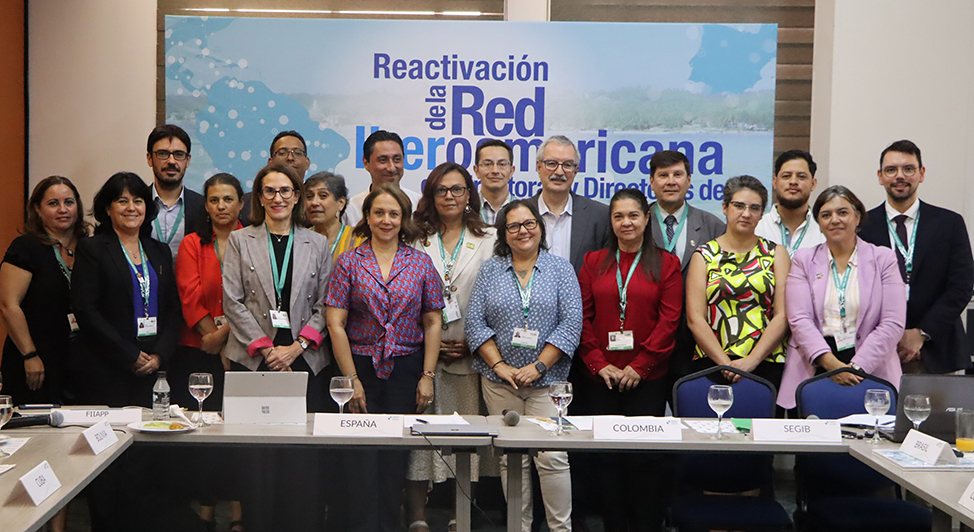Summary of Euroclima's participation in COP16 through thematic events reflecting its commitment to biodiversity, climate change and sustainable development.
Euroclima stood out at COP16 in Cali, Colombia, through events organised by its implementing agencies. These activities demonstrated its commitment to protecting biodiversity and fighting climate change, promoting synergies between public policies, scientific knowledge, and traditional knowledge. The following highlights their participation in this environmental summit, organised by theme.
Biodiversity conservation and public policy cooperation
Euroclima played a key role in the "Reactivation of the Ibero-American Network of Biodiversity Directors," which aimed at coordinating and strengthening public policies for the preservation of biodiversity in Latin America and the Caribbean. This effort, led by the governments of Colombia, Spain, and the Ibero-American General Secretariat (SEGIB), with the support of the European Union, now includes 16 countries.
"The exchange of experiences and international cooperation is essential to developing more effective public policies," explained Almudena Barrio, Coordinator of the Euroclima Programme at the International and Ibero-American Foundation for Public Administration and Public Policy (FIIAPP).
During the event "From COP16 to COP30: protecting nature to preserve the climate," representatives of Euroclima, Latin American governments, Indigenous peoples, and civil society addressed the need to align biodiversity preservation with climate change policies.
"It makes sense that policies to tackle climate change and biodiversity loss should be coordinated and mutually supportive," said Maria Jarvio of the European Commission's Directorate-General for International Partnerships.
At the event, government representatives underlined the essential role of international cooperation and funding in advancing environmental policies, and indigenous leaders highlighted the role of their communities in the sustainable protection of biodiversity.
Sustainable water management and peacebuilding in conflict zones
At the European Union Pavilion, Euroclima organised the conference, "From Conflict to Peace: Water Management and Ecosystem Conservation" to reflect on the role of water in biodiversity conservation and peacebuilding in conflict areas. Moderated by Marjorie Michel, Euroclima Coordinator at the Agence Française de Développement (AFD), the event featured opening remarks by the EU Ambassador to Colombia, Gilles Bertrand, and the intervention of sustainability experts.
Sergio Garrido, program manager at AECID Costa Rica, concluded the event by highlighting the importance of fair land use planning and equitable access to water, especially in vulnerable areas. The need for collaborative partnerships for water resource management and biodiversity protection in conflict contexts was also underlined.
Bioeconomy and community development in Amazonia
Expertise France, GIZ, the Spanish Agency for International Development Cooperation (AECID) and the International Union for Conservation of Nature (IUCN) Spain led the discussion, "Good practices and challenges for a community-based Amazonian bioeconomy", in which they addressed bioeconomy opportunities in the Amazon region, highlighting how indigenous communities can benefit from green and sustainable business models without resorting to deforestation. Multi-stakeholder collaboration is critical to ensure the success of these initiatives in a region with high levels of biodiversity and environmental challenges.
At the event, "Contributions to the integration and recognition of Indigenous Peoples in governance systems," the Amazon Cooperation Treaty Organisation (ACTO), together with AECID, GIZ, and ECLAC, highlighted the creation of the Regional Platform for Indigenous Peoples and Climate Change, a project to integrate Indigenous knowledge into strategies for sustainable management of biodiversity and climate change. Participants noted that this type of inclusive governance is key to meeting the region's international commitments.
Euroclima's participation in COP16 reaffirms its commitment to sustainability and resilience in Latin America and the Caribbean. Co-financed by the European Union and the German government through the Federal Ministry for Economic Cooperation and Development (BMZ), Euroclima promotes a just and sustainable transition through climate mitigation and adaptation efforts, with objectives such as protecting biodiversity and the circular economy.
This programme is embedded in the renewed EU-LAC Agenda and the Global Gateway strategy, which promotes investments in strategic sectors. Implemented under the Spirit of Team Europe, Euroclima coordinates efforts through eight agencies: Spanish Agency for International Development Cooperation (AECID), the French Development Agency/Expertise France (AFD/EF), the Economic Commission for Latin America and the Caribbean (ECLAC), the International and Ibero-American Foundation for Public Administration and Policies (FIIAPP), the Deutsche Gesellschaft für Internationale Zusammenarbeit (GIZ), the United Nations Environment Programme (UNEP) and the United Nations Development Programme (UNDP).
Euroclima consolidates its position as a critical platform for dialogue, cooperation and the implementation of effective, long-term environmental policies in the region.

